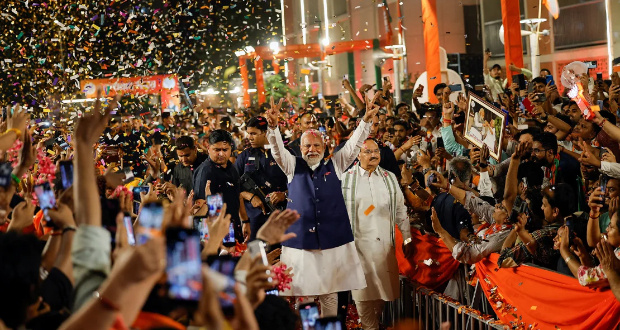“Today is a glorious day… National Democratic Alliance (NDA) is going to form the government for the third time, we are grateful to the people,” Modi told cheering supporters at his party headquarters in New Delhi, referring to the initials of his political alliance. “This is a victory for the world’s largest democracy.”
Modi is set to form a government with the help of his NDA allies – a third consecutive term and a landmark that makes him one of the most successful politicians in post-independence India.
But Modi’s ruling Bharatiya Janata Party fell short of securing the 272 seats needed to win an outright majority in parliament, a stunning upset that leaves them reliant on coalition partners to form a government.
Modi’s NDA alliance won 292 seats combined, out of which his BJP alone secured 240.
This is a personal blow to Modi, who had triumphantly vowed to win a 400-seat supermajority in this year’s election – and romped to victory the last two contests with a simple majority for the BJP, turning his Hindu nationalist right-wing party into an electoral juggernaut.
India’s opposition, who had largely been written off in the polls and by many analysts, portrayed the result as a rejection of Modi’s divisive style.
Rahul Gandhi, the leader of India’s National Congress, said early election results showed that the “country has unanimously and clearly” stated that it does not want Modi and his party to run the country.




